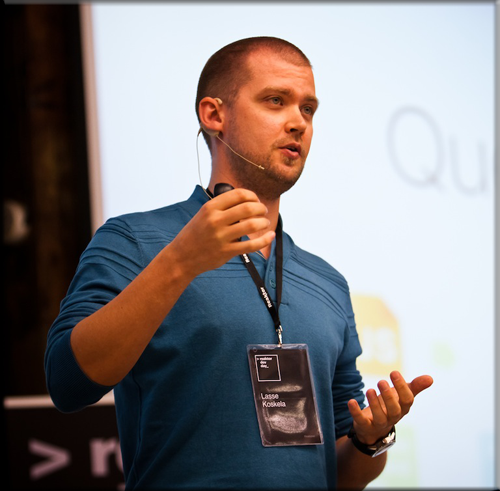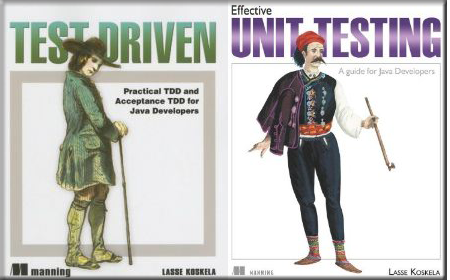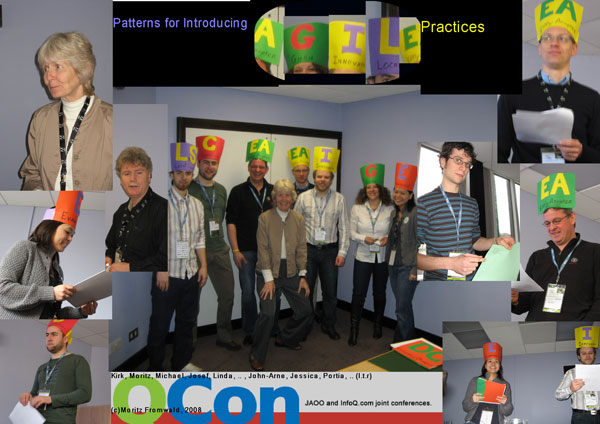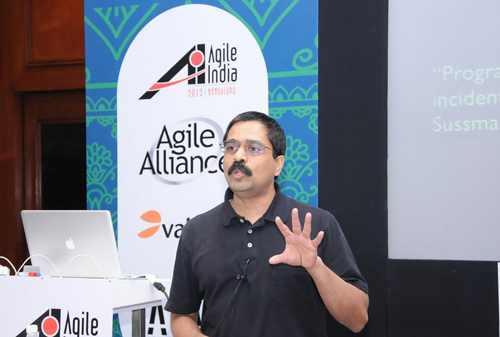Test Driven Development Applied Workshop by Lasse Koskela at Agile India 2013
Monday, January 14th, 2013Lasse Koskela will be presenting a workshop on ‘Test Driven Development Applied’ at Agile India 2013. He works as a coach, trainer, consultant and programmer, spending his days helping clients and colleagues at Reaktor create successful software products.

Lasse is also the author of books ‘Practical TDD and Acceptance TDD for Java Developers’ and ‘Effective Unit Testing’.

He is one of the pioneers of the Finnish agile community and speaks frequently at international conferences. He recently spoke at Agile2012.
We interviewed Lasse recently and asked him several questions related to one of his favourite topics TDD (Test Driven Development).
What are the mindset changes required by the developer(s) and team members when adopting TDD?
That would likely depend on the developer but I’d say that most often the biggest change required in one’s mindset is to acknowledge that you don’t know everything.
The more experience a programmer has the more likely they are to think of themselves as being “good”. A little confidence can be a huge boon to productivity but too much confidence creates blind spots–we literally learn to not question our assumptions and end up repeating the same old solution even if it’s not a very good fit.
TDD, on the other hand, makes us state some of those assumptions–such as what would be a good design for this class–in such concrete terms that it’s difficult to ignore the awkwardness when the same old solution doesn’t quite fit. It doesn’t fit and you can feel it through the difficulty you’re having writing a test for that design. Sometimes, you look at your test and go, “that doesn’t make any sense–much easier would be to…” And you end up changing the design.
How does TDD help developers in improving the art of software craftsmanship?
The process of programming test-first where you begin by expressing your intent from an automated unit test’s perspective has an almost magical effect on the kind of code you write. It’s much harder to write the kind of monolithic code we’ve all come to hate so much because the process of test-code-refactor invites you to create small, composable classes with clear responsibilities.
What I’ve also found is that TDD tends to help programmers learn what object-oriented design really means. It’s not just about encapsulating your code into “classes” but it’s about putting cohesive behavior into those classes. I wouldn’t go as far as saying that TDD makes you write object-oriented code but it certainly helps. I would say, however, that the better you understand object-oriented design the more comfortable you’ll likely feel test-driving code.
TDD is often perceived as slow, how does one justify the costs and benefits of TDD?
I haven’t heard that particular comment in a while but there certainly are a lot of skeptics when it comes to TDD. I guess every significant programming technique will have some skeptics. Skepticism is not a bad thing per se. In reasonable amounts a little skepticism is a healthy thing to have. That’s why I don’t try to persuade people to believe that TDD is good for them. I might believe but that doesn’t matter much. What matters is whether they themselves have an aspiration for becoming better. If you have that aspiration, perhaps you’ll give TDD a try and see for yourself.
With that said, there has been quite a lot of research into TDD–much more than around most other agile engineering practices–and that research seems to support the notion that TDD is a viable method for developing software. Research done at IBM and Microsoft, for instance, has measured that TDD (compared to a test-last approach) reduced defect densities by 40-90% while the management estimated that it added 15-35% to the time to implement a feature. The management had also concluded that the cost was far outweighed by the time and cost savings created by the reduction of defects.
I will repeat, however, that I don’t want you to take my word for it–or the researchers’ for that matter (especially without reading the research papers yourself). Instead, I’d like people to accept the possibility that they may or may not experience those reported advantages. If they decide to give it a try, even better. If they don’t, I hope they’re giving some other new technique a try. The absolute worst outcome would be that we stagnate at the status quo and stop improving on our profession.
What will be the key take away for the workshop attendees?
For first-timers the key take away is absolutely the first-hand experience of test-driving code. For people who’ve already dipped their feet into the water, I would expect them to walk out with the realization that their style of programming test-first is just one of many–some of which they’ve seen applied in the workshop–and with a resolution to try something slightly different when they get back to work. That’s something I am hoping to take away myself, too!
Seats for Lasse’s workshop are limited so book soon to avoid disappointment: http://booking.agilefaqs.com





